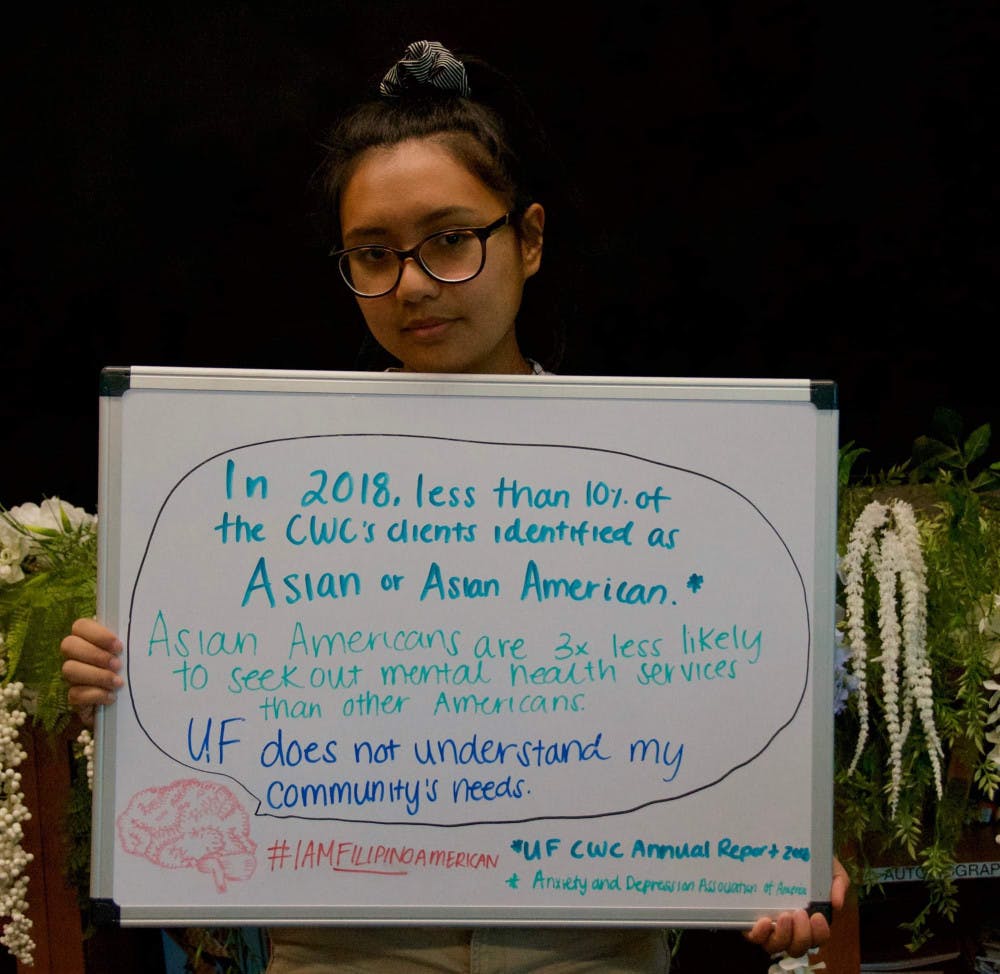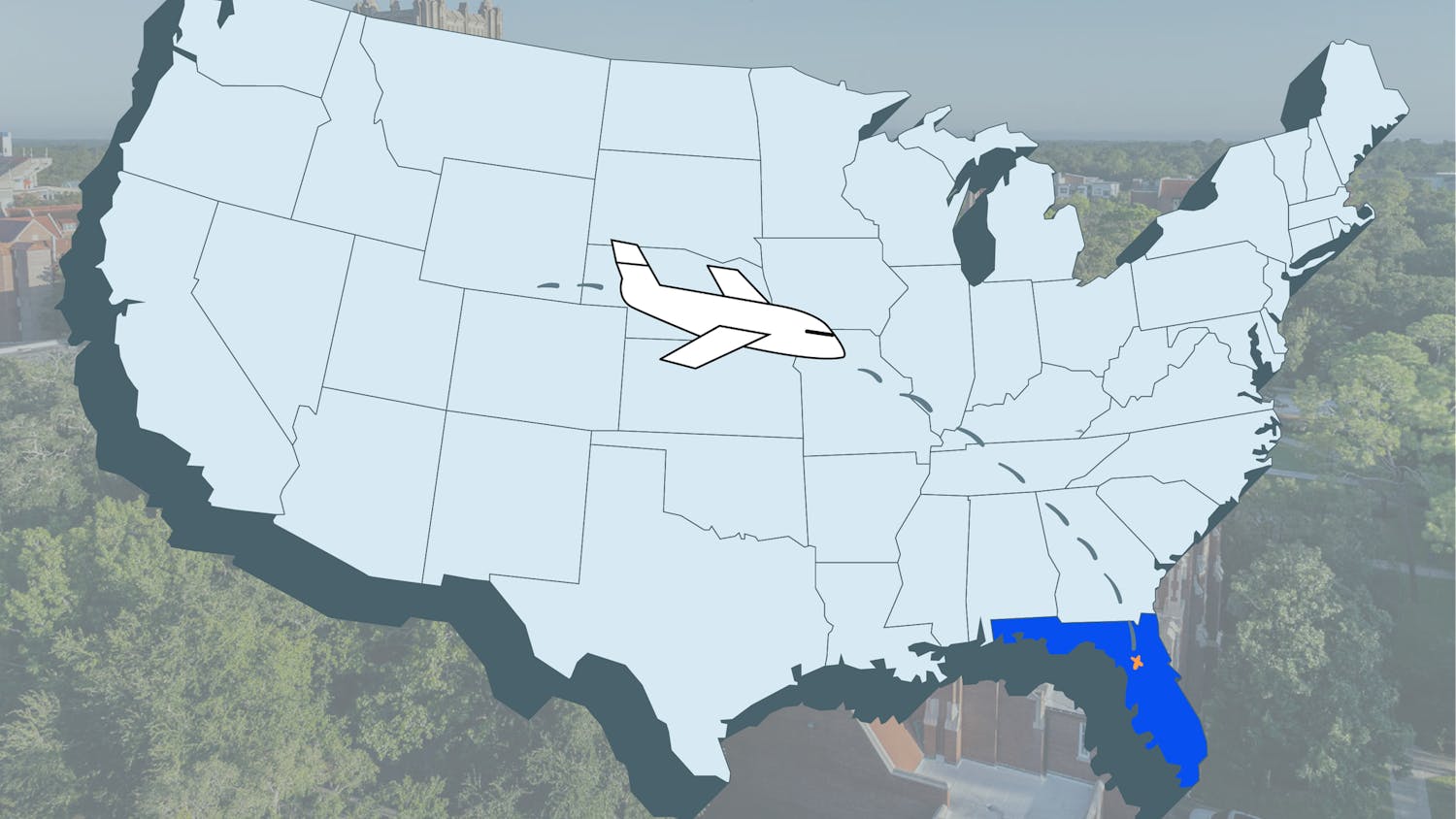Kelcey Hernandez held up a sign that summarized four years of struggle in seven words.
“UF does not understand my community's needs.”
Hernandez was one of 43 students in front of the camera for the Asian Pacific Islander Desi American (APIDA) task force and Asian American Student Union’s first Facebook initiative highlighting the lack of resources Asian American students receive on campus.
Hernandez, a 21-year-old UF health education senior, said as a first-generation Filipino American student, Counseling and Wellness Center counselors weren’t equipped to deal with the intricacies that surround mental health issues in Asian cultures during her visit in Fall 2017.
To her, addressing mental health in Asian communities is taboo.
“Even within our community, people don’t feel open to talking about it,” Hernandez said. “It’s a barrier having to explain what you’re going through to someone that will never really get it.”
According to the UF CWC 2018 report, about 10 percent of clients identified as Asian American or Asian.
APIDA and AASU’s campaign asked students to write their concerns on whiteboards. Each image tells a story: their native language isn’t offered, Asian diaspora studies aren’t taught and students don’t have a cultural center to call home. Their faces ranged from showing pride in their heritage to disappointment at UF’s lack of action.
Vibhor Nayar and Emma Sanchez, APIDA’s task chairs, created the series after seeing a similar campaign created by Yale’s Asian American Studies Task Force. To Nayar, a 24-year-old UF mechanical engineering senior, seeing students’ emotions from behind the lens was impactful.
“With photos, where you can attach names and faces, you see a person, and them holding up a message they care deeply about,” Nayar wrote in an email to The Alligator.
Nayar said he doesn’t feel represented on UF’s campus as an Indian American.
“Discussions about mental health resources, diversity space resources, course offerings, etc. consistently show that our community, international and domestic, is consistently underserved,” Nayar wrote.
Although Asian American students are7.35 percent of the student population, the group is the second largest minority on campus. Despite this, UF is one of the few Top 7 universities that doesn’t have an institute for Asian or Asian American studies.
Sanchez, a 19-year-old UF international studies sophomore, said the lack of spaces for Asian studies and students is visualized on University Avenue where the Institute for Hispanic-Latino Cultures and the Institute of Black Culture will have their ribbon-cutting ceremony in November.
As a Filipina American, she wishes other minority groups supported the Asian and Asian American community’s efforts to get an institute the way she supported theirs.
“We had been speaking to people in Latin American Studies and African American Studies,” Sanchez said. “They would say bringing up the fact that the Asian American community doesn’t have an institute isn’t valid...That ignores and undermines that our community has very specific needs that aren’t being met by the university.”
Kelcey Hernandez, a 21-year-old UF health education senior, said she doesn't feel seen on UF's campus as a Filipino American.






